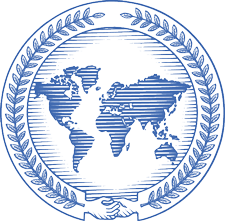The Social Enterprise (SE) Practicum is the capstone of our 2-year masters program. It serves as a vehicle to personally integrate what students learn in their graduate coursework, consulting projects, study abroad, internships, and paid employment.
It does this by providing an opportunity for students to demonstrate their ability to apply what they have learned in the program in a situation that approximates aspects of the post-graduate professional activities in which they intend to engage. It is a bridge between fulltime graduate study and fulltime involvement in the world of social enterprise.
By the end of the practicum, students must demonstrate their ability to:
- Develop and execute a work plan that leads to a social innovation
- Move a situation from Point A to Point B, producing a resume-worthy accomplishment
- Make mid-course corrections and learn from your experience
- Build strong professional relationships with and draw upon the resources of faculty, Practitioner Affiliates, student colleagues, and external advisors.
Common Elements
The core of the Social Enterprise Program is creativity, breaking out of dysfunctional rules and practices, positive change, initiative taking, and innovation. The nature of a practicum project should reflect these values. It should also reflect students’ professional identity, as expressed in the specialization they have designed and pursued.
Our program encourages students with a wide diversity of career interests to use the program as an incubator for their ideas about social change or new ventures that they develop during their graduate study through coursework and experiential learning. For this reason, the SE Practicum is intended to offer a significant degree of flexibility in both practicum subject and how it is carried out.
Practicum projects may be solo efforts or team endeavors, depending on the nature of the proposal. All students engaged in a practicum will meet periodically to both learn techniques that cut across the range of projects undertaken that semester, and to advise, coach, and support each other. Additionally, each practicum project must select an individual or small team of individuals from outside the SE Program to serve as project mentors.
Each student or team will conclude the project by presenting it to an audience of students, faculty and Practitioner Affiliates.
Options
Because each student’s interests in this field are different, there is always a wide variety of practicum projects undertaken during this semester-long experience. Some students may create a new organization, build a prototype, apply a social enterprise technique to an existing organization, or lead a change effort. Some students will work in the U.S., some abroad. The common thread is that these are all hands-on efforts intended to result in doing something, in taking an action that leads to some form of societal betterment.
Practicum projects may involve producing a variety of real-world results:
- Employ your critical thinking skills to address a debated issue in the SE space (i.e., the role of prizes and competitions to drive innovation, the limits of applying private sector techniques) in a way that measurably influences debate in this field
- Develop a new method of use to practicing social entrepreneurs
- Build a prototype of a social innovation, applying what you have learned about design thinking
- Launch a new SE organization or venture
- Create an alternative “SE way” of addressing an important existing societal concern
- Solve a problem plaguing an existing organization
- Change a policy or practice to benefit an existing organization
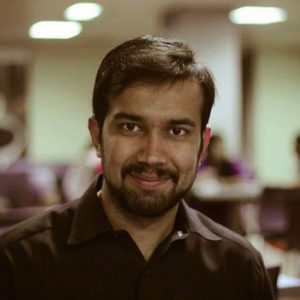
Akhtar Muhammad Abid
For his social enterprise practicum project, Akhtar created a leadership development curriculum for an NGO that runs rural schools in Pakistan, his home country. The curriculum consisted of a training manual and slideshow for instructors that will help them teach third- to eighth-grade students about leadership skills through sports and good sportsmanship.
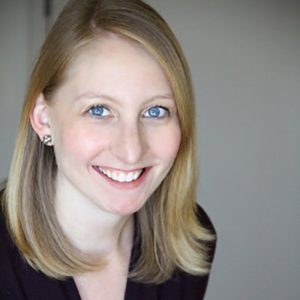
Lindsay Dahl
Lindsay created a digital marketing strategy and campaign plan to help Osa Conservation, a small nonprofit preserving biodiversity in Costa Rica, attract key markets for its new ecolodge, Osa Verde. Lindsay interviewed potential visitors, synthesized market and academic research, created a data-driven digital marketing strategy, provided recommendations for optimizing the Osa Verde website for bookings, and developed a comprehensive campaign plan that included channels, timing, and budget. The ecolodge, opening in late 2018, will help fund Osa Conservation.
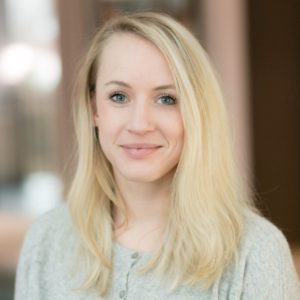
Caroline Englund
Caroline’s practicum project consisted of designing a participatory impact evaluation for Sustain Liberia, an NGO that runs a vocational school with five different programs as well as an academic school (first through 12th grade) in Liberia. Caroline first identified the causal chains leading to a new theory of change for the NGO. She then designed an evaluation of these programs and provided recommendations on how to use the data collected to raise funds for Sustain Liberia.
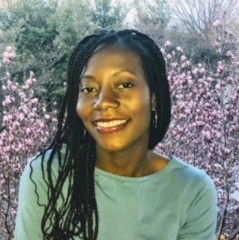
Ifunanya Enezuagu
Ifunanya organized a Social Entrepreneurs Skills Clinic, held in April 2018. Her goal was to help "low-visibility" social entrepreneurs in the D.C. area build proficiency in key areas that affect enterprise growth and management. The focus was to support local social entrepreneurs in continuing the good work that benefits their communities and to recognize the economic value of social impact.
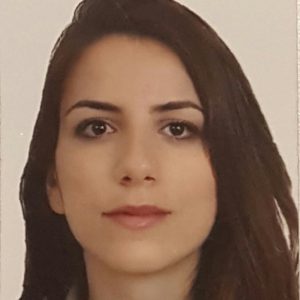
Rina Fetahaj
Rina designed an interactive workbook for social entrepreneurs who live in her native Kosovo. Her workbook distills complex concepts in an easy-to-follow manual and is intended to assist a user in connecting the dots among the mission identified, the work practiced, and the social impact envisioned. Social enterprise is relatively new in Kosovo, and Rina found there to be a lack of exposure to the practices and frameworks that guide the work of a social enterprise. When she returns to Kosovo, the workbook will be used in the first social enterprise boot camp there.
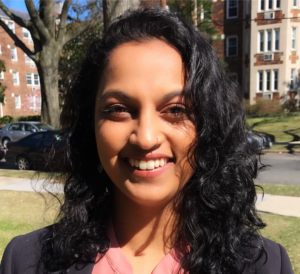
Anamika Kumpawat
Anamika created a workshop on sexual violence for young women, ages 16 to 18, who live in the slums of Delhi, India. She had the opportunity to work with a Delhi NGO, FXB India Suraksha, and do research on this issue. Anamika first conducted interviews and fieldwork for a needs assessment, helped by the relationships she had built with these individuals. As she then developed her workshop, she focused on bringing the language of this issue and most importantly, prevention tools, to these young women.
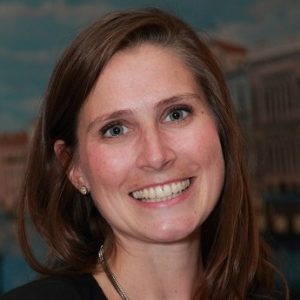
Chrissy McCurdy
Chrissy created a Toolkit for Maximizing Advisory Board Engagement, tailored to her employer and client, Urban Alliance, an organization that helps economically disadvantaged youth succeed after high school. The toolkit consisted of literature- and interview-based tips and tools for recruiting, empowering, engaging, and appreciating members of advisory boards. This project sprung from Chrissy’s discovery that few resources exist for advisory boards—boards without fiduciary and governance responsibilities—and from her interest in qualitative research and human-centered design.
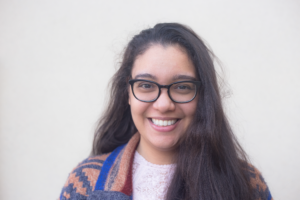
Maribel Rodriguez
Maribel created the project, Love 4 Immigrants, to celebrate immigrants through the creation of inspiring photographs and stories that display immigrants in positive and dignified ways. The storytelling focuses on the value immigrants bring to the U.S. Maribel created a website that serves as a home for saving memories so that future generations can understand in a meaningful way how immigrants’ rich experiences are part of what makes America beautiful.
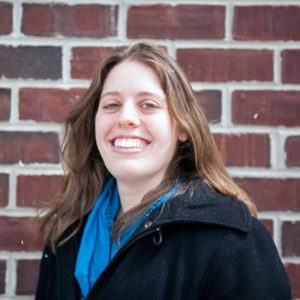
Jen Stutman
Taking the untraditional path of weaving her master’s degree in social enterprise with two years of Peace Corps service in Macedonia, Jen worked with fellow Volunteers and local NGOs to design, coordinate, and implement a three-day training program on mental, physical, and reproductive health for youth leaders across Macedonia. These newly trained youth leaders were then tasked with conducting similar programs in their home communities. Six months and nearly 20 community sessions later, around 150 youth and counting have been reached across Macedonia.
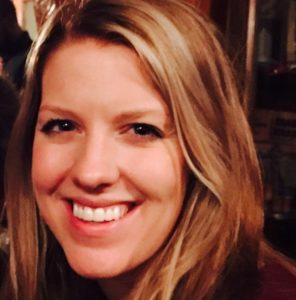
Rebecca Villalobos
Rebecca developed a B2B (business-to-business) strategy for Landmine Design, an ethical fashion company with a mission to employ and empower women in rural Cambodia. She conducted in-depth market research and interviews to build an ethical promotional product offering and strategy for Landmine Design to engage corporate partners. Rebecca’s project grew out of her belief that social enterprises in the competitive ethical fashion space must find new opportunities to grow their impact while corporations need to build more social responsibility into their buying power.

Julie Walton
Julie has extensively researched and acted upon how a model of care for children‘s homes in India can be replicated in Sri Lanka. After volunteering over the years at several children’s homes in Sri Lanka, Julie became concerned by both the care offered to orphans and vulnerable children and the lack of support from international policymakers. She has been studying this disconnect throughout her time at SIS. Her desire is that all these children have access to model care and be provided with everything they need to build a healthy and joyful future.
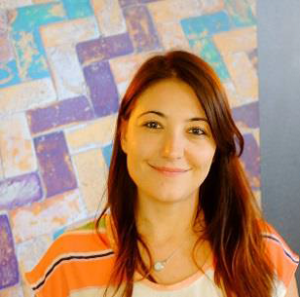
Deborah Agustoni
Deborah joined the Social Enterprise master’s program with a passion to help empower individuals affected by human trafficking. For her practicum, she traveled to Cambodia to conduct a needs assessment with trafficking survivors and at-risk youth to understand their needs, skill sets, and aspirations. To address their economic needs, Deborah created a business model for FreeLux, an all-natural conscious skin care company that would employ those affected by human trafficking in supply chain cooperatives. After graduation, Deborah plans to start fundraising for FreeLux.
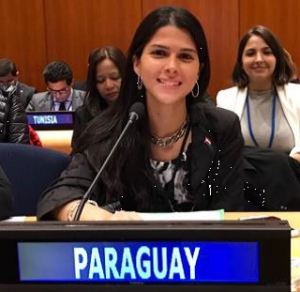
Magali Cacares
Paraguay is experiencing an extraordinary development opportunity with over 60% of its population younger than 35 years old. This historic moment provides an enormous opportunity to innovate. The purpose of Maga’s practicum on “Innovation and Youth Public Policies in Paraguay: Best Practices and Recommendations” is to deliver a proposal to the Government of Paraguay, specifically the Ministry of Youth, that analyzes the main challenges of Paraguay’s youth and provides concise recommendations for youth public policies and interventions based on best practices in the region.
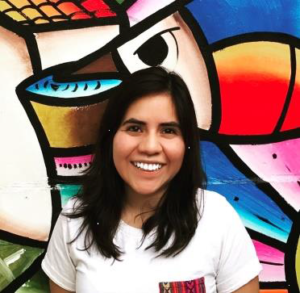
Juny Canenguez
Juny focused her practicum on economically empowering artisans in El Salvador. She spent two weeks in El Salvador conducting a needs assessment, where she interviewed and observed artisans from various sectors. She found that one of their main needs is related to marketing. Therefore, she created a blog that showcases artisans and their work. Juny realized that she can help artisans by telling their stories to new audiences, as investing in artisan businesses creates jobs, increases local incomes, and preserves ancient cultural traditions that in many places, such as El Salvador, are at risk of being lost.
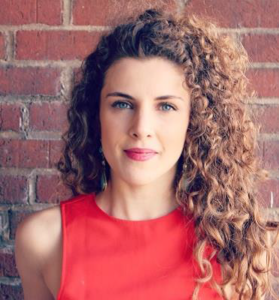
Annea Hapçiu
A KAEF fellow from Kosovo, Annea worked during her graduate studies to further develop the all-girls educational and professional bureau, Global Girl Media, that she established two years ago. For her practicum project, she created a social business plan and social impact model for the first yoga studio in Kosovo—n’Yoga. She established n’Yoga in 2013, with the goal of helping people deal with the war trauma and difficult post-war environment created in the country. By helping to highlight yoga locally through her project “Yoga in Albanian Lands,” Annea hopes to attract foreign travelers to her country to learn more about Albanian culture. She is currently working on a crowdfunding campaign to raise funds to help renovate new space for n’Yoga.
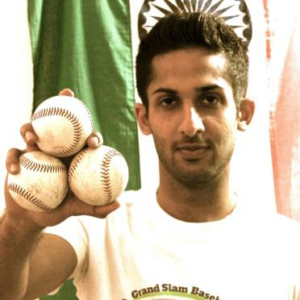
Raunaq Sahni
At age 20, Raunaq co-founded Grand Slam Baseball with his childhood best friend and continued the organization’s development while at AU. Grand Slam Baseball is the umbrella organization for all baseball and softball programs in India. The organization launched India’s first professional-size baseball and softball stadium in collaboration with Major League Baseball in January 2017. Raunaq was invited to give a presentation about Grand Slam Baseball’s social impact at the World Bank headquarters in DC. He is now planning his second venture, a dairy cooperative project that aims to help 200 Indian villagers currently living in extreme poverty.
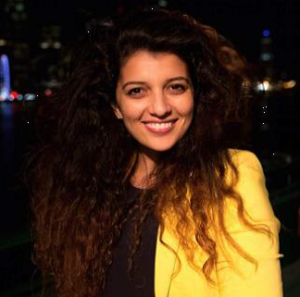
Saloua Lahlou
As a global language, English fluency has become a highly marketable skill. In many parts of the world, English language education remains an opportunity available only to the privileged, leaving many youth without the ability to gain the necessary skills to improve their lives. For her practicum, Saloua launched Crafting Love and Hope, a new youth empowerment initiative to provide a combination of technology and language education to youth residing in the Sanabil Al Khair orphanage in Ain Atiq, Morocco. The organization provided electronic tablets and teaching faculty to classrooms to expedite and enhance the learning process, making it both enjoyable and sustainable.
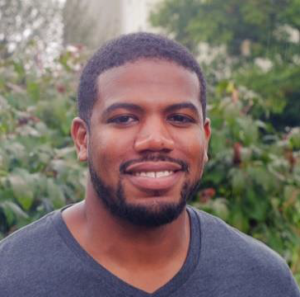
Bryant Sewell
Bryant Sewell’s practicum focused on a business solution that helps employers with talent needs “hire in” for potential rather than exclude individuals for a perceived lack of experience or education. The beneficiary of this solution is not just the employer; it is also the millions of economically disadvantaged young adults who build their human capital through non-traditional routes. Bryant’s research and interviews culminated in a hiring platform that allows these young adults to present their interests, experiences, competencies, and character qualities to employers. Hiring managers now can search beyond a resume to find a good fit for a job and their organization.
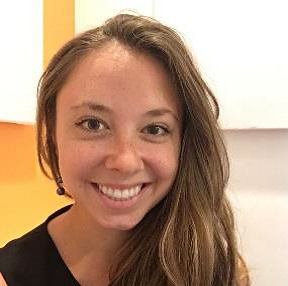
Sarah Oakes
Sarah worked with Eagle Hill—a small, woman-owned consulting business that focuses on strategy, organizational design, and change management. She developed a Corporate Social Responsibility (CSR) strategy to help employees develop skills, support local nonprofits, and create social impact in the DC community. Sarah conducted a needs assessment with input from employees and senior leadership, local nonprofits, and private sector organizations to identify best practices and strategic opportunities for Eagle Hill. Sarah developed a strategic plan that included employee volunteer opportunities, a pro-bono consulting program, and a philanthropic giving strategy.
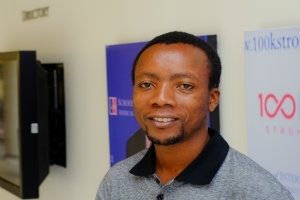
Louis Sichali
Louis is a Fulbright scholar from Malawi, completing his master’s degree in Social Enterprise with a concentration in entrepreneurship and development. Back in Malawi, Louis worked as a vocational school teacher. For his practicum at AU, he developed a training guide and PowerPoint presentation on entrepreneurship and innovation to provide workshops in Malawi for vocational school trainers who then can teach students about innovation and entrepreneurship. Louis believes that imparting innovative entrepreneurial knowledge to Malawi youth is key to reducing youth unemployment.
